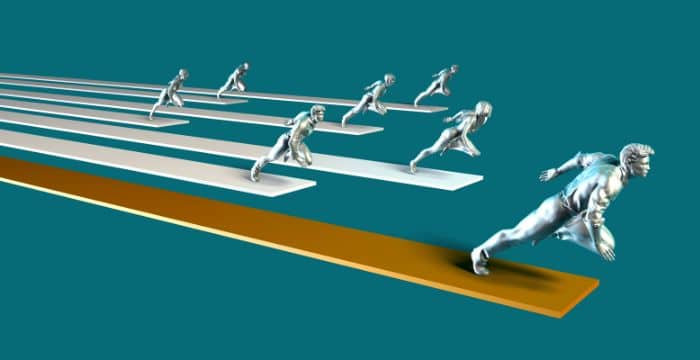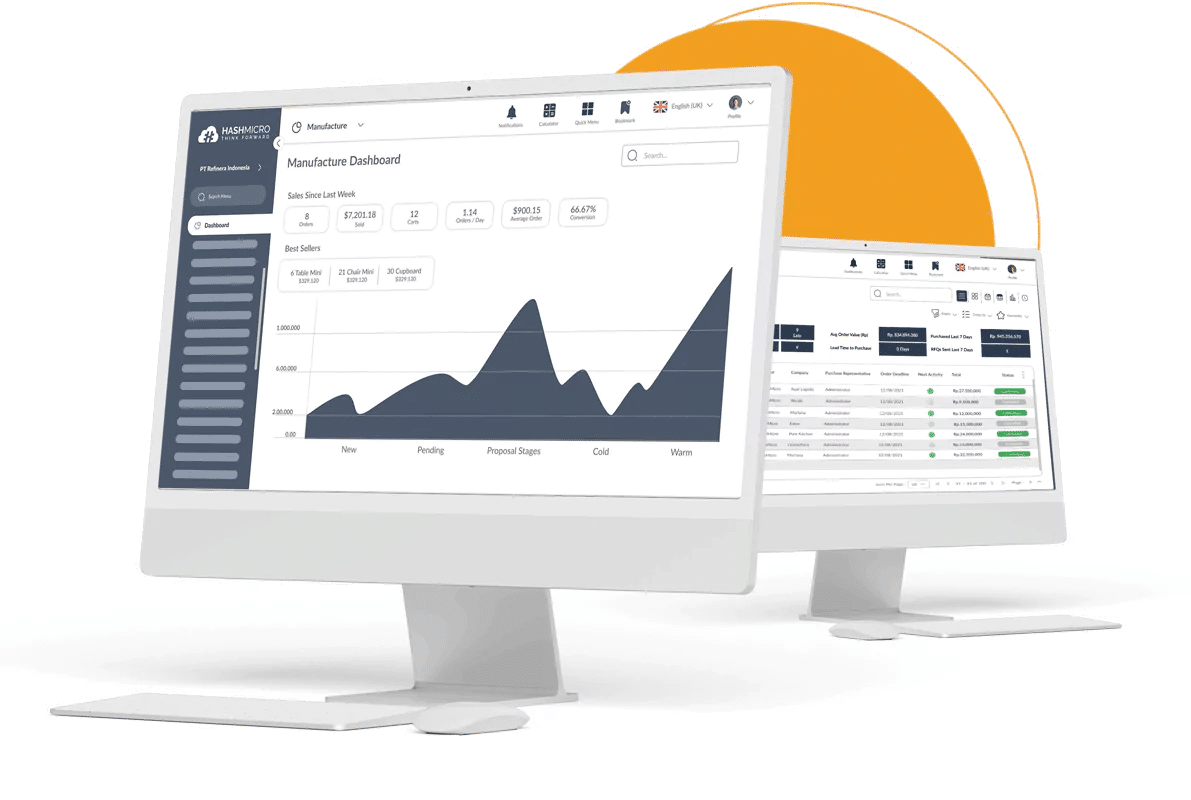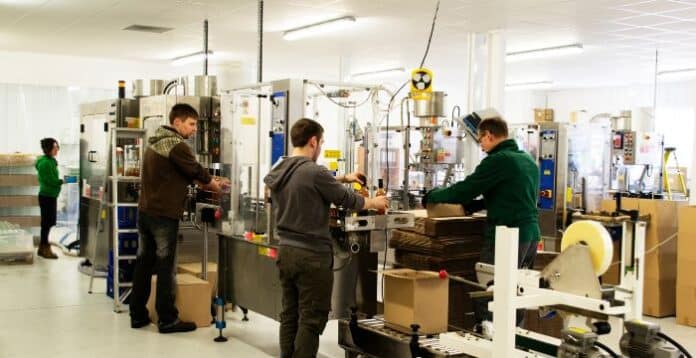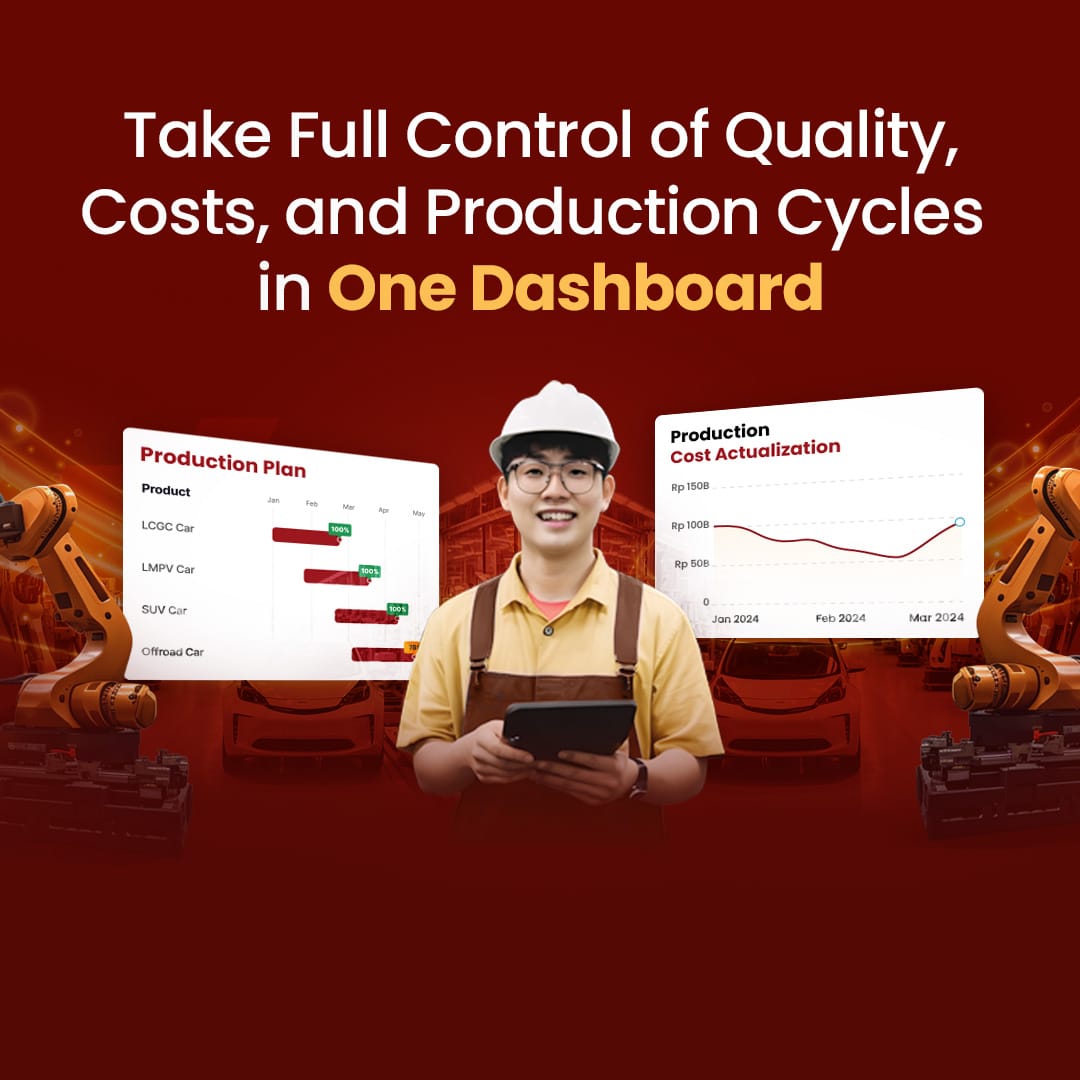In the manufacturing industry, there are a variety of processes involved, such as material sourcing, quality control, inventory management, and many more. To oversee those processes, manufacturing management is essential. Managing the various production activities of your manufacturing company will most certainly give you benefits, such as increased profitability and customer satisfaction.
To get effective manufacturing management, automation like manufacturing software plays an important role. In this article, we will discuss more about manufacturing management.
Table of Content:
Table of Content
What is Manufacture Management?
Manufacture management means managing manufacturing operations, which involves using various techniques and strategies to enhance those operations. Specifically, it includes handling resources such as personnel, technology, equipment, and other elements that can help increase the effectiveness and output of the manufacturing processes. This can be done manually, and also automatically by using manufacturing software.
The purpose of manufacturing management is to ensure that the physical equipment and interface the employees use work seamlessly together to benefit the company. Manufacturing software can blend human and automated activities in real-time. In other words, it is a platform that helps you optimize manufacturing operations.
8 Benefits of Manufacture Management
As we know, managing manufacturing processes can be difficult to do. However, there are many benefits that your manufacturing company can gain through manufacturing management. Here are the five main benefits.
Competitive advantage

Increase company’s profits
Your company’s operations can be more efficient with manufacturing management. Efficient operations can enhance your profitability as they can help to free up your manufacturing manager’s time. With the free time, the manager can think of fresh ideas and implement them to boost your company’s sales. Moreover, with an experienced manager, it becomes simpler to monitor your income and expenses. This will result in a higher overall revenue in the future.
Increase product quality
Enhanced production quality can be achieved through manufacturing operations management. It is by optimizing the effectiveness of the operations and the way you store your raw materials to prevent damage and minimize losses. To do so, you can also utilize various tools like manufacturing software, warehouse management system, defect trackers, and more which provided by HashMicro.
Boost customer satisfaction
Implementing a quality manufacturing management program that can uphold high standards while also maximizing efficiency is extremely important. Doing so can help your company fulfill customer’s expectations and boost their satisfaction. With that, it will improve customer retention and increase referrals.
Reduce waste
The utilization of manufacturing operations management can assist in minimizing waste production, which is a great benefit. You can manage the operations by managing stock levels and decreasing the amount of inventory space needed. By doing so, you can reduce the risk of production problems caused by shortages and increase precision in manufacturing.
Better data management
Better data management in manufacturing management is a pivotal benefit that significantly enhances operational efficiency and decision-making. This aspect involves the meticulous collection, analysis, and utilization of data from various stages of the manufacturing process. With advanced data management, manufacturers can gain deep insights into production performance, supply chain logistics, and consumer trends, enabling them to make more informed and strategic decisions.
Increased flexibility
This flexibility manifests in the ability to adapt swiftly to changes in consumer demands, market trends, and technological advancements. By adopting flexible manufacturing practices, companies can efficiently alter production lines, integrate new processes, and customize products to meet specific requirements without compromising on efficiency or cost-effectiveness.
Regulatory compliance
Regulatory compliance in manufacturing management is a critical benefit that cannot be overstated. It entails adhering to a myriad of laws, regulations, and guidelines that govern various aspects of the manufacturing process, ranging from environmental standards to quality controls and safety protocols. By ensuring compliance, manufacturers not only mitigate the risk of legal penalties and fines but also demonstrate a commitment to maintaining high standards in production and operations.
Also Read: Best Cloud Manufacturing ERP Software for Singapore Enterprise
Automated Software to Run Manufacture Management

HashMicro’s manufacturing software can help you streamline all the manufacturing operations with accurate integrated data that you can access automatically in real-time. Additionally, your company will be able to save costs and time in the production process. With fully-featured automated manufacturing software, your manufacturing company will surely gain many benefits.
Here are some important features of HashMicro’s manufacturing software:
- Work Center Dashboard: This feature provides a centralized, real-time view of all manufacturing activities at the work center level. It enables managers to monitor production progress, track the utilization of resources, and identify bottlenecks or inefficiencies in the process. This dashboard ensures that decision-makers have immediate access to crucial data, facilitating swift and informed decision-making.
- BoM (Bill of Materials) Forecast Cost: This functionality allows for precise cost forecasting for each product by analyzing the Bill of Materials. It helps in estimating the cost of raw materials, labor, and overheads, providing a clear picture of the potential expenditure involved in the manufacturing process. This feature is crucial for budgeting, pricing strategies, and overall financial planning.
- Generate Multiple Manufacturing Orders: HashMicro’s software enables the creation of multiple manufacturing orders simultaneously, which streamlines the production scheduling process. This feature is particularly useful in managing large-scale operations or handling multiple product lines, ensuring efficient allocation of resources and timely fulfillment of orders.
- Production Records Approval Matrix: This feature introduces a structured approval process for production records, enhancing the quality control measures. It ensures that each stage of the production process is reviewed and approved by the relevant authorities, thereby maintaining high standards and minimizing errors or deviations from the set processes.
- Lot/Serial Number Traceability Report: This is a crucial feature for quality assurance and compliance. It allows for the tracking of products through their lot or serial numbers, providing a detailed history of the production process. This traceability is essential for managing recalls, addressing quality issues, and complying with industry regulations. It also enhances transparency and accountability in the manufacturing process.
HashMicro also offers a free demo service to show you the functionality of the overall dashboard. You can also discuss about the software with the professional assistant and ask for customizable software.
Conclusion
In conclusion, manufacturing management can give your company many benefits, including increasing your company’s profitability. In addition, you can optimize your manufacturing processes’ efficiency with HashMicro’s manufacturing software. You can also spare costs by claiming up to 70% of NTUC CTC Grant. For more information, you can kindly check out our website.
























































